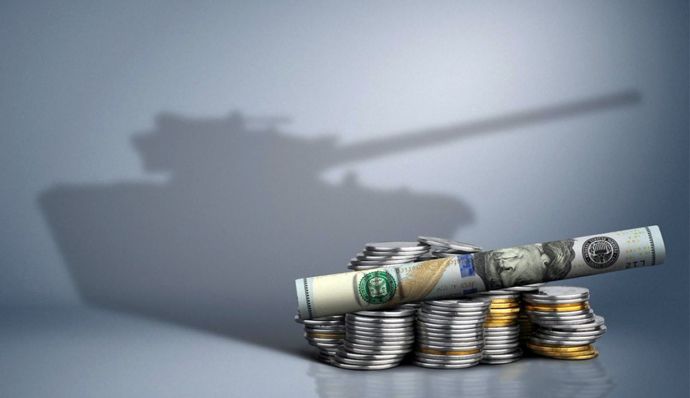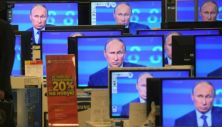Russia will significantly increase military spending in 2024. Where the Kremlin plans to get money for the continuation of the war against Ukraine and what awaits the citizens of the aggressor country – in the story of the FREEDOM TV channel.
Defense spending has increased from the current 4% to 6% of GDP and will account for a third of all budget expenditures. So, in absolute terms, spending on the army will amount to 10 trillion 800 billion rubles, which is 4.5 trillion more than in 2023.
“To understand what it is, it’s 100 billion dollars,” said Oleg Pendzyn, Executive Director of the Economic Discussion Club.
For the first time in the history of Russia, the budget for the army will exceed the expenses under the article “social policy”. It is planned to spend 7.5 trillion rubles on payments to citizens in the coming year, which is 3 trillion 300 billion less than on the war. So it will become even more difficult for pensioners and low-income people to live in Russia.
The quality of Russian education and medicine will not improve either. At a time when the ruble has depreciated by 30% compared to the dollar, and inflation, according to surveys, has risen to almost 20%, spending on education and health care will remain at the previous level – about 1.5 trillion rubles. The money is the same, but you can buy much less with it.
“Social spending, spending on education, and health care will be sharply reduced, but, excuse me, who cares about this in the Russian elite? But no one,” says the economist.
The Russians plan to make money on this, despite the sanctions imposed by Western countries in response to the full-scale invasion of Ukraine. Putin’s government expects to earn 22% more in 2024 than it does now. Revenues will be increased by raising customs duties and increasing the export of petroleum products. In particular, the Kremlin relies on the manufacturing industry, machine building, metallurgy and the agro-industrial complex.
So that the economy of the aggressor country does not strengthen, economists believe that the civilized states of the world should again expand the list of sanctions.
“Whole sectors of the Russian economy did not fall under sanctions restrictions. “Rosatom”, “Alrosa”, trade in diamonds, nickel, and sale of rare earth metals are already on the tongue,” Pendzin explained.
Russia’s budget for 2024 proves once again that Putin and his team are not going to stop the full-scale war against Ukraine. A significant increase in military spending is a signal to the West that it is time to introduce even tougher sanctions against the Russian Federation.
“The market remains, revenues remain, cash flow remains. Therefore, all these things enable the Russian Federation to continue financing the war. All these things make it possible for the Russian Federation to receive money in the budget,” said the economist.
Russians should once again think about whether they need a government that chooses a criminal war against innocent people instead of the well-being of its citizens.
International sanctions are already having a serious impact on the Russian economy: the trade balance from January to August decreased by 68% compared to the same period last year. Andriy Yermak, the head of the Office of the President of Ukraine, wrote in his Telegram channel. And he noted that the USA has already announced additional sanctions. In particular, the restrictions will affect companies involved in the production of Orlan and Shahed drones, as well as other drones used by Russia.













